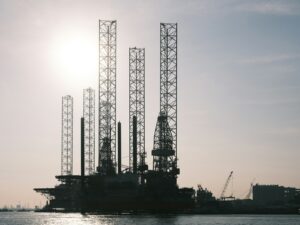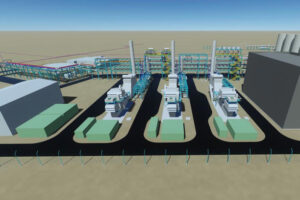Energy-related carbon emissions rise at fastest rate since 2011
The energy industry’s carbon emissions rose at their fastest rate in almost a decade in 2018 as extreme weather ramped up demands for fossil fuels, BP announced yesterday.
Launching its annual Statistical Review of World Energy, the oil and gas company said that an unusually large number of hot and cold days increased a demand for fossil-fuelled cooling and heating services, hampering global ambitions of tackling climate change.
The company warned that the world’s current rate of progress in transitioning to clean energy is ‘inconsistent’ with the goals of the Paris Agreement, adding that achieving net zero emissions will only become more costly as emissions continue to rise.
Introducing the findings for 2018, Spencer Dale, BP chief economist, said: ‘There is a growing mismatch between societal demands for action on climate change and the actual pace of progress, with energy demand and carbon emissions growing at their fastest rate for years. The world is on an unsustainable path.’
Carbon emissions grew by 2.0% in 2018, the fastest rate in seven years as the swift rollout of renewable energy still couldn’t meet rising energy demand.
While renewable energy climbed by 14.5% last year, keeping its place as by far the world’s fastest growing energy source, it provided only a third of the required increase in power generation.
This demand was met by the increased production of coal, oil and natural gas, with the US seeing the biggest ever annual increase seen in oil and gas production in any country.
China, the US and India combined made up more than two-thirds of the global increase in energy demand, due to both industrial demand and extreme weather effects.
In particular the US experienced its highest number of unusual heating and cooling days since the 1950s, increasing demand for energy to power air conditioners, fans and heaters.
BP’s group chief executive Bob Dudley said: ‘The longer carbon emissions continue to rise, the harder and more costly will be the necessary eventual adjustment to net-zero carbon emissions.
‘As I have said before, this is not a race to renewables, but a race to reduce carbon emissions across many fronts.’
Decarbonising the global economy while meeting growing power demand will not be a problem that renewable energy can solve on its own, Dudley said.
He added that the solution will likely require a variety of different fuels and technologies, such as coal-to-gas switching and widespread carbon capture, use and storage (CCUS).
A study led by the National Institute for Environmental Studies in Japan (NIES) recently found that a shift from coal to natural gas will be key in helping countries meet their climate change targets.
Katsumasa Tanaka, a senior climate risk researcher at the NIES, said that natural gas could serve as a useful ‘bridge fuel’ towards more sustainable forms of energy.















